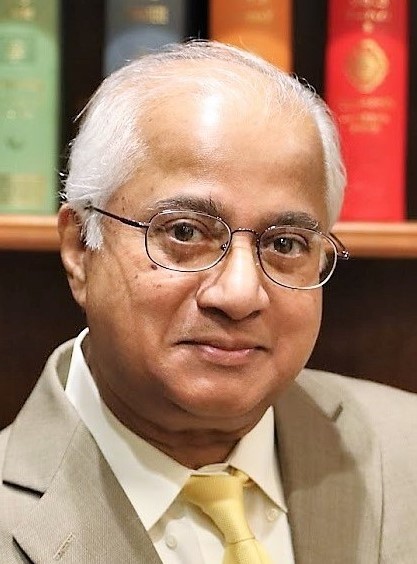One of the qualities of a great book is its ability to transport you into a world of your imagination, into your own islands of life where you visit and dwell in a period that is sacred to you, undistributed, private, secret and untouched for years -- it's your reverie. A home stacked away in memories where the mere recall of your loved ones gives you a sense of security, peace and safety. As you read through Dr. Ahmed's poems, you may find an anchor for your own expressions.
The book "Suspended Somewhere Between" is a collection of poetry by Dr. Akbar Ahmed, who is aptly called "the world's leading authority on contemporary Islam" by the BBC News. Dr. Ahmed seeks what a majority of us seek; to live in harmony with what surrounds us -- life and matter.
The essence of one of the poems, "What I Seek," is primarily what each one of us seeks. I found a deep resonance with him in this poem. It lights up the spark of the universal embrace of Jesus, Muhammad's desire to imbue a sense of equality through humility, Mahatma Gandhi's jihad against oppression and temptations to revenge, and Martin Luther King's firm belief in human dignity. They were the models of excellence on the earth that he invokes to put us on the pathways of peace. It is indeed a poem for men and women who have an open heart and an open mind towards fellow beings.
I was tense reading the title of another poem, "The Train to Pakistan". Years ago, I had differed with Dr. Ahmed's take on Jawaharlal Nehru in his movie "Jinnah," which he had gracefully acknowledged without agreeing. Being a Subcontinentian, I am equally committed to the peace and prosperity of the region and have come to admire Dr. Ahmed's efforts in prose and now in the form of poetry. As the poem moves forward, I paused at the Killing fields of Punjab and visited Sunder Lal in Bangalore, who had came in the other train to Delhi and witnessed the slaughter of his family members in the same Punjab but on the other side of the divide. It was painful but the wise man was not hateful.
Dr. Ahmed puts me at ease about the carnage. Instead, he expresses his gratitude to his mother who had asked to take the next train, and blames none for what happened to his would-have-been train where no one survived. It is the statesman in him that seeks solutions rather than blame, just as my father taught me one of the important lessons of life -- to build cohesive societies. During the communal riots in Jabalpur in the 60s, both Muslims and Hindus were killed in the mayhem. He was clear and named the individuals without emphasizing their religion to be blamed. He said you cannot blame the blameless intangible religion and expect justice, we must blame the individuals who caused it and punish them accordingly for disturbing the peace and thus bring a resolution to the conflict by serving justice. I see that value jumping out of Dr. Ahmed in that poem and that is the definition of an ideal Muslim; one who seeks to mitigate conflicts and nurtures goodwill.
The poem "Khyber Pass" moves you again; especially those who are seeking to create a cohesive America where no one has to be apprehensive of the other. It is the not the pass, it is how one responds that affects the equation. The Nuclear Power in the right hands is beneficent while destructive in the other, same as the story of religion.
Dr. Ahmed has dedicated a beautiful poem for his mother and this stanza expresses the sentiments of most of the humanity:
"When I know that at midnight
she sits up praying to her God
to keep me warm and whole,"
"Suspended Somewhere" is a reflection of a life that has experienced it all, from the near obliterating journey in the train to a new land of hope, idolizing the founder of that nation, Muhammad Ali Jinnah, to passionately working to restore the dream of one nation. Pensive at Khyber, a PhD from London University, an Ambassador to United Kingdom and author of one of the most successful books on contemporary Islam in America, Dr. Akbar Ahmed appeals to those who can bring about a positive change. It's a beautiful journey of hopes and aspirations.




